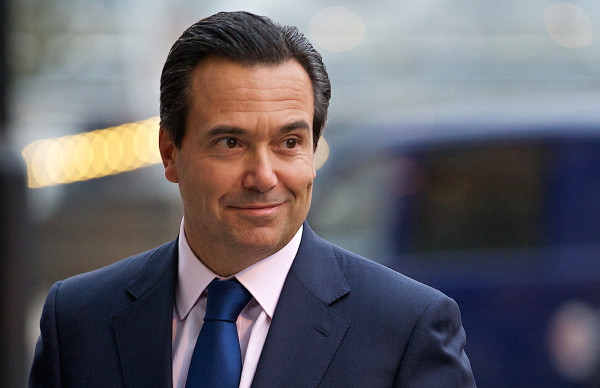

Lloyds Banking Group has hit back at criticism from MPs over its chief executive's pension perks, claiming that António Horta-Osório (pictured) deserves the incentives he is given for bringing the bank back 'from the brink'.
At a Work and Pensions select committee hearing yesterday (June 19), Mr Horta-Osório dismissed accusations from MPs that he his greedy.
He said: "My total compensation, at £2.85m, is absolutely in line with other major bank chief executives.
"That doesn’t mean at all that we aren’t – and we are – mindful of reducing the pay gap. We think that should mostly be done by increasing lower paid staff because that is what affects their living conditions."
The MPs questioned Mr Horta-Osório's pension contribution rate, at 33 per cent, when the maximum level for other Lloyds employees is 13 per cent.
This came after in November 2018, the Investment Association published its principles of remuneration which set out investor expectations on executive pay, and highlighted high pension contributions as a key concern.
The IA stated pension-related payments should not be used as a mechanism for increasing total remuneration, and pension contribution rates for executives should be aligned with those of the workforce.
Stuart Sinclair, independent director and chair of the bank’s remuneration committee, who was also at the hearing, noted that Mr Horta-Osório had already taken a partial cut to his pension, and that Lloyds would be discussing a new pay policy in May next year, which is expected to include changes to pension perks.
He noted the bank reviewed its policy every three years and that the group would be "very conscious of the convergence thinking" between workers' and executives’ contributions.
Independent Labour MP Frank Field questioned Mr Sinclair about dissatisfaction among Lloyds employers regarding Mr Horta-Osório's high pension perks, as he had received emails from the bank's staff.
Mr Sinclair said: "When I go out to see people which are on £22,000, £30,000, £40,000 [salary], they see António [Horta-Osório] as a winner, because he has brought this bank back from the brink. And people regard that as a big achievement, and there is a charisma around António [Horta-Osório].
"Which actually means a lot of people say: ‘Good luck to him. He works incredibly hard and I don’t resent him.’"
In March 2019, the Work and Pensions select committee considered launching an inquiry into executives’ pension payments, after companies came under fire for failing to align these with the rest of their staff.
The Business, Energy and Industrial Strategy committee published a report saying that companies must do more to link top bosses’ pay to that of the rest of their workforce.
maria.espadinha@ft.com



